There have been various instances where the gentleman’s game has shown its dark side to the world. Every player would always love to script his career the way he wants, but not always can one escape the wrath of the misfortunes that the game brings.
Ups and downs are part and parcel of the sport but when a legend’s career ends in ignominy, it is always heart-breaking. Every hero in the field has to face a villain in one way or the other, and in cricket, the antagonist can be poor form, mental stress or sometimes even external factors such as criticism or even dirty politics.
Here are 10 such instances when a star player had to call it a day, but not on his own terms:
1. Andrew Symonds
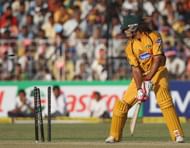
A player who mastered the shorter formats of the game, Symonds was a typical all-rounder of his times with his hard-hitting abilities married with fierce fielding and useful spin/medium pace bowling.
He was an integral part of the mighty Aussie side but sadly he stepped into controversy every now and then. His blistering performances were negatively affected by issues like playing under alcohol influence (2005), the famous Monkey Gate scandal in 2008 and missing a compulsory meeting in 2009.
His days with the Australian team came to an end with another alcohol-related issue popping up prior to the World T20 in 2009. After three years of no international games under his name, he announced his retirement officially in 2012.
To see a special all-rounder like Symonds exit on an unfortunate note will always remain a sad memory in many hearts.
2. VVS Laxman
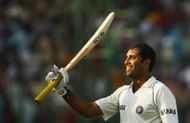
‘Very very special’ Laxman’s farewell was not one to remember like that of many others. What came as a major surprise was that he announced his retirement in spite of being selected for the Test series against New Zealand in August 2012.
Speculation arose immediately that the veteran was not treated well by the BCCI, who denied the allegations. Adding fuel to the speculation were questions raised about his form by former cricketers and critics, but the stylish right-hander said that his decision came as a result of listening to his ‘inner voice’.
Laxman, one of the four pillars of the ‘Fab Four’, was not given a chance to represent India in any of the four World Cups that took place during his career. For a special cricketer like him, this unfitting farewell was not what the majority would have wanted.
3. Shivnarine Chanderpaul
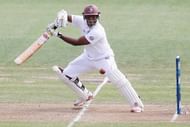
Perhaps the latest and the most prominent instance of a star’s career ending on a low note is that of Shivnarine Chanderpaul. The man with the ‘crab-like’ stance was just 87 runs short of becoming the highest run-scorer for the West Indies in Tests.
However, the WI cricket board again struck up a controversy by axing Shiv for the home series against Australia. The snub didn't go down very well with the left-hander, who announced his retirement in January 2016.
West Indian great Brian Lara slammed the board for their decision and said that Chanderpaul needed to be sent off with a farewell series like that of Sachin Tendulkar’s. But sadly, it was not to be.
4. Sourav Ganguly
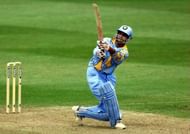
The ‘Prince of Calcutta’ might have had a fruitful career filled with triumphs and glory, but Sourav Ganguly's retirement story was not as colourful as it seemed to the outer world. It all started with Greg Chappell ascending to the role of India's coach, which was followed by disagreements between the two.
The captaincy was handed to Rahul Dravid, and then two years later, India were knocked out of the 2007 World Cup. The leader behind India’s 2003 WC journey slumped in the Sri Lanka series in 2008, after which came the final decision. ‘Dada’ was given a good farewell series against the Aussies. Still, his retirement was not a whole-hearted decision.
Retiring as one of India’s greatest captains, he himself confessed that he regrets his decision; he felt he had at least two more years of cricket left in him. “I could have probably just said 'Let them do what they want' and wait for my time,” he said.
5. Jacques Kallis
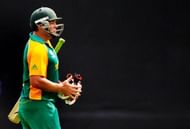
A hard-working 115 in white flannel against India was the last innings that Kallis played in Tests. That gave the cricketing world a hint that a lot of cricket was still left in him. But it did not take much time for the tables to turn around.
Six months after that innings, Kallis managed to score just five runs in the three ODIs against Sri Lanka, after which came the statement on his retirement from the shorter formats. This came not much after he expressed his wish to play and win the then-upcoming WC in 2015.
Since his debut in 1995, Kallis had been a silent hero for South Africa with 25,534 international runs and 577 international scalps. His stupendously impressive voyage in cricket spanned through five World Cups, all ending in a defeat.
The lack of a World Cup trophy will probably go down as an unfulfilled dream for Kallis.
6. Mark Waugh
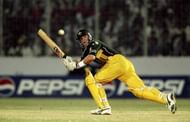
One of Australia’s most elegant and accomplished batsmen, Mark Waugh knit a very good career. However, it did see a few low points, one of which resulted in drawing the curtains on his playing days.
His run during the late years of his career saw a contrasting rise and fall in his form. The ‘Junior Waugh’ was at his zenith in 2000-2001, followed by a drastic fall in the very next year.
After getting dropped from the ODI side, the Waugh brothers were under the gun during the Pakistan series in 2002 in which Mark failed to impress the selectors. As expected, he was sacked from the team and lost his place to Darren Lehmann, following which the 37-year-old announced his retirement.
Mark was then Australia's leading ODI run-scorer, but unlike his elder brother Steve, he did not have a fairytale ending to his career.
7. Waqar Younis
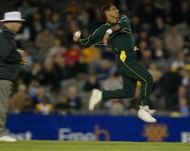
The career of the master of ‘reverse swing’ was surging at top speed before the gears got reversed towards the end.
One of the world’s best swing bowlers, Waqar Younis' target was always the stumps and not the batsman. It's no wonder he managed to hit the bull’s eye so often, with a majority of his wickets being bowled or lbw.
But Waqar started losing his venom by 2000, in spite of which he was appointed the captain of the team in 2001. His captaincy tenure was not very different than his career, which also scaled several peaks at the start but declined towards the end. A forgettable series against Australia and a disastrous WC exit in 2003 added salt to his wounds, eventually making him lose his captaincy and place in the side.
Unable to push himself with the new team filled with fresh blood, the Pakistan legend soon announced an unceremonious retirement. But if you take a glance at Waqar’s stats, you would definitely say that his career did not end the way in which it should have.
8. Mohammad Yousuf
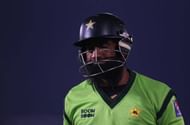
A player who redefined batting, Mohammed Yousuf was another victim of board-related political issues. Playing in banned leagues (ICL, 2008) and allegations of stirring up in-fighting in the dressing room (Australia, 2010) earned him short-term bans, which severely damaged his long-term prospects.
Yousuf responded to the second ban by announcing his retirement in 2010, but the PCB had no other choice than to request him to come out of it. He had a good tenure following the return but was again let down by the board as they refused to renew his contract in 2011.
Having played no international games for more than a year, Yousuf finally declared that there was no point announcing retirement when he had not played for so long. With two World Cup defeats and a quiet send-off, Yousuf’s career was one with a good beginning but a sad ending.
9. Kevin Pietersen
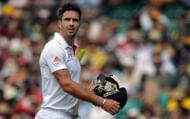
Kevin Pietersen is perhaps the best example of what should not happen to a world-class player. His relationship with the ECB has never recovered since cracks began to show in 2008-2009.
During South Africa’s tour of England in 2012, he was marred with the defamatory messages controversy, after which further contract-related disputes led to a premature retirement from the shorter formats of the game. With all issues buried, he emerged as the leading run-scorer (294 runs) for England in a disappointing Ashes series in 2013-2014.
But the disagreements came to the fore again, and KP was dropped for the Caribbean series, hastening the end of his career. Despite a career-best 355* in first-class cricket in 2015, Pietersen was again ignored for the home series against New Zealand by the new ECB head Andrew Strauss.
While many greats came out in support of Pietersen, Strauss’s message sounded like the elegant right-hander's exile would be in effect for a long time. However, Pietersen has since officially announced his retirement through an Instagram post in 2018, and that is no way for a batsman of his calibre to bow out of the sport.
10. Ian Healy
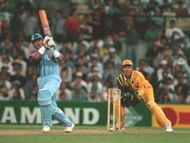
Australia’s great wicket-keeper of the 1990s did not have a rosy end to his career. After a surprise entry into the national side, he anchored his role behind the stumps for well over a decade. The Warne-Healy duo blossomed as one of the finest pairs in cricket, and will continue to be remembered as such for years to come.
However, the decision to go with separate teams for ODIs and Tests affected Healy’s position in the team. The rise of Adam Gilchrist as an attacking opener signalled the end of Healy in the shorter format, while his poor form did the job in the Test arena. By 1999, his form had seen a steep decline and then Gilly became the first choice keeper.
The board rejected Healy’s proposal to play one final farewell series. He then requested for one last game at his home ground Brisbane, which was also a song sung to deaf ears.
Brand-new app in a brand-new avatar! Download CricRocket for fast cricket scores, rocket flicks, super notifications and much more! 🚀☄️
